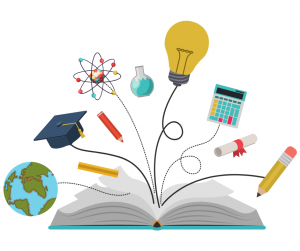Action Research in Educational Settings: Opportunities Await
Posted:Wednesday, September 12, 2018
 By Massage Therapy Foundation Trustee Brent Jackson, M.Ed., BS
By Massage Therapy Foundation Trustee Brent Jackson, M.Ed., BS
Research is vital in assisting massage therapy educators to teach the next generation of massage therapists. While case studies, randomized controlled trials, and meta-analyses may be familiar to massage practitioners, action research is rarely mentioned outside of the realm of academia.
Action research provides both quantitative data and qualitative yields in the form of new concepts and paradigms. The researchers are typically educators or instructional designers; and research focuses on problems identified within their own learning environments or organizations. Researchers participate in the action research process and data collection. Conclusions and inferences gained may be limited to the environments in which the research is conducted or may yield data useful for general applications across other organizations and systems.
A key strength of this modality is its versatility and applicability to other professions and educational settings. Conclusions reached may inspire ideas and solutions in educators even outside the original organization. Action research also has weaknesses. Researcher bias may affect perception of student success or process effectiveness. Some solutions which may be valid for one organization may not be viable in another setting. Environmental factors, processes, and personnel dynamics may affect whether results are replicable for another organization. However, there is usually at least one suggestion or clue an educator can extrapolate from an action research study that can be applied to his or her own strategies or knowledge.
Action research holds endless possibilities for MT educators. Just as MT action research may spark ideas in other arenas, action research studies conducted in other healthcare professions and career training programs may have components applicable to MT education. Massage educators should not limit themselves to looking for research that is the perfect match to their profession and school setting. Examples of some of these studies include NCLEx preparation strategies for nursing students, faculty professional development concepts, technology training strategies, skills assessment tools for physical therapy educators, and clinical reflection tactics for clinical practice education.
As the MT profession moves forward with increased opportunities for teacher certification and accreditation, I encourage educators and organizations to delve into current action research. The MT profession can benefit if educators begin exploring, performing, and documenting their own action research.
BIO: Brent Jackson, M.Ed., BS, is an MTF Board of Trustees member and chair of the MTF Education Committee. He is the Academic Program Manager of the massage therapy program at Central Carolina Technical College.
